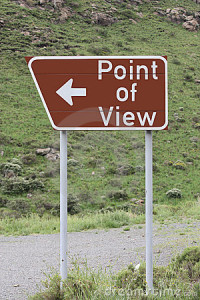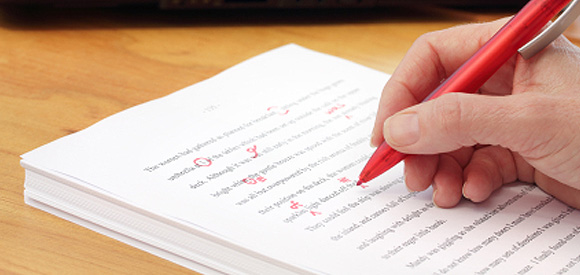The weeks have slipped by since I last wrote. My silence has not been for lack of ideas. Sometimes, in the midst of the shouting from both screen and page over the various crises that have  come and gone, I have not felt the need to add my voice. The main reason, however, is my writing has been focused in other directions. I turned in the first draft of my next book (I love writing that sentence), which will be out in the fall. I have also been doing some work for my publisher that has afforded me different ways of seeing the words on the page as both a copyeditor and a curator of quotes for a devotional smart phone app.
come and gone, I have not felt the need to add my voice. The main reason, however, is my writing has been focused in other directions. I turned in the first draft of my next book (I love writing that sentence), which will be out in the fall. I have also been doing some work for my publisher that has afforded me different ways of seeing the words on the page as both a copyeditor and a curator of quotes for a devotional smart phone app.
As an author, I am creating something that wasn’t there before. I don’t know that I am saying anything that is completely new—in fact, I’m quite sure I’m not—but I am writing something that did not previously exist. The process is challenging, invigorating, frustrating, and despairing, depending on the hour. Regardless of the feeling in the moment, the overall arc—the point of view—is one of hope: I am working to contribute to the greater good, to foster community, to issue an invitation to connect. I want to write so that those who read can find resonance, to offer a way to look at the world that is filled with invitations.
As a copyeditor, the task is to correct, even to look for mistakes. I’m the one who checks for Oxford commas, who makes sure the writer knows the difference between that and which, who checks for spelling and punctuation. Though I manage to read the manuscript as I go, I am not looking to engage the author as much as I am just making sure he or she makes sense. My task is not relational. I don’t’ even deal directly with the writer. I like the work because it makes me learn the rules. I am a better writer from reading and righting what I find on the pages of others, and I’m glad it’s a side job because I weary of righting. I have to do it in short shifts because I get too focused on one or two errors and end up hunting for them. I remember the same dynamic from my days grading forty or fifty essays from my high school teaching days. To focus primarily on what is wrong for too long skews my vision. At the same time, my attention to their details offered them a chance to make things better. This time I didn’t have to grade them, just make corrections and comments.
The work on the devotional app has been like a treasure hunt. Once it’s up and running, a person can open the app on his or her phone and get a daily nugget of hope and encouragement. A sentence of support and solidarity. The publisher sent me a stack of books from their authors and invited me to go quote mining, which was a fun and fruitful exercise. Like the copyediting, I was not trying to take in the whole of what each one was saying, but this time I was looking for what they had done well. Instead of “look what you did wrong” it was “look what you said!” And I found much worth sharing.
To see the three points of view as metaphor continues to challenge me beyond the work itself. I am finding it helpful to pay attention to how I am looking at the world in a particular moment: am I creating resonance, correcting, or complimenting? Perhaps I need to notice if I only look at particular people or particular situations from one perspective. If someone feels the only way I look at them is as an editor, neither of us is getting a good look at the other. If someone feels I only pay attention long enough to get what I want from them, we are both losing out.
As Lent begins, and I begin my Lenten Journal for another year, I am mindful that paying attention to life means remembering to see in different ways on purpose. The Bible is filled with stories of people who were called to take a different look, to change their points of view. For that matter, so is most all of human history. To love, to grow, to forgive, to become all call us to new ways of seeing.
Open the eyes of my heart . . . .
Peace,
Milton

Milton, Lenten blessings.
Thanks, Leah.
And congratulations on the fastest comment to a post ever. 🙂
Peace
Milton
Always worth reading. Thank you for your input into my heart.
Milton, I am looking forward to traveling along on your Lenten journey together wth you. Thank you so much for your insightful post. There are parts that will be included in my journal so I can reread from time to time during the season. Blessings my friend.
I have missed hearing your “voice” and look forward to reconnecting during Lent. Thank you.
Thank you, Milton. Thinking about my relationships with my students and three points of view…
Could you include a few of your own quotes on the app? I keep a file of quotations and yours are among my favorites. “We are not lost, we are loved” is one I come back to again and again.
Congratulations on the book – I’m looking forward to reading it!
So take it as a song or a lesson to learn
And sometime soon be better than you were
If you say you’re gonna go, then be careful
And watch how you treat every living soul
My eyes can’t look at you any other way,
Any other way, any other way…
— band of horses, “Detlef Schrempf”
Now when someone says “I liked your book” you can say “which one?”
Here are the words I am thinking about this year for Lent:
They are the lyrics from “An Affirmation”, Andrew Carter’s anthem we sang at Covenant on Sunday and will sing again tonight at Rothko Chapel in Houston.
I expect to pass through
this world but once;
any good thing therefore
that I can do, or any kindness I can show,
or any service I can render to any
soul of human or animal, let me do it now;
let me not defer or neglect it,
for I shall not pass this way again.
attributed to Stephen Grellet (1773-1855)
There may be too many words for a phone app, but just enough for 40 days and 40 nights.
Milton – a teacher myself (in one of my earlier incarnations!), in both the classroom and the rehearsal hall, I appreciate your insight about the way that spending much of one’s time searching for the grammatical errors to define, rhetorical wrongs to be righted, and the logical problems to rectify can skew one’s perception of all things towards focusing on the problems rather than celebrating the accomplishments of others -and probably ourselves, too. Thank you for reminding me of this basic lesson: wherever possible, subordinate the error in order to celebrate the good.